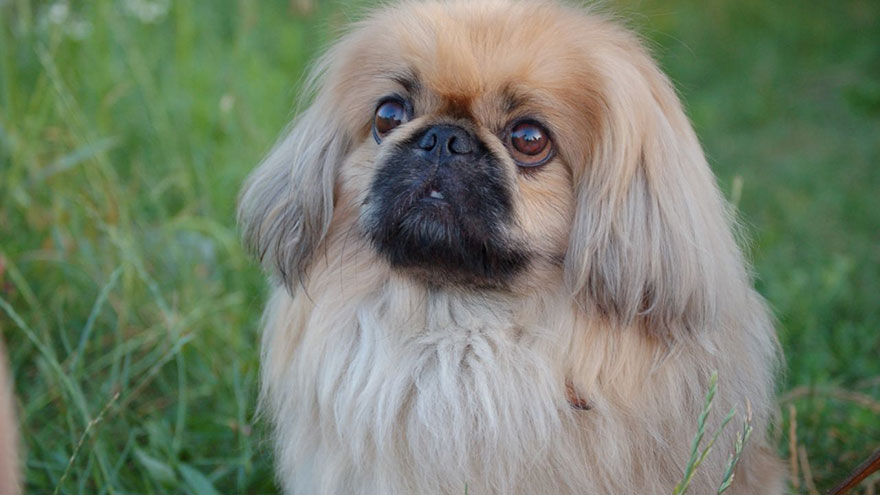Pekingese Health Guide
A healthy, well-bred Pekingese can live as long as 15 years, though 10 years to 12 years is more common. The breed has a tendency toward eye problems and breathing problems, according to many experienced owners and breeders.
The dog has a very small skull and a flattened face that contribute to these conditions. A new owner should be aware of the possibilities from the beginning.
Health Problems in the Pekingese
Eye ulcers may develop almost spontaneously. There are different types of corneal ulcers, including those caused by trauma to the eye or infections. This condition can be treated to prevent pain and further infection. If you suspect any level of eye problem with your Pekingese, contact your veterinarian immediately.
There is also a condition known as the refractory ulcer that heals poorly. These tend to occur more often in middle-aged or older dogs. The Pekingese is considered one of the more commonly affected breeds.
The Pekingese may develop breathing problems, especially if left outside for any extended period. The flattened face and nose structure contribute to this condition as well. If your Pekingese develops a problem with breathing, the dog may have trouble with body temperature because it cannot regulate this temperature in hot or cold weather.
Pekingese may also have pinched nostrils and even a slight amount of extra tissue in the throat that can add to the breathing problem.
Owners should also pay extra attention to potential back problems with the Pekingese because of its body structure. If you pick up your pet, give the back adequate support with the hands under the chest and stomach.
Some Pekingese also have trouble with climbing stairs, especially those that are older. The Pekingese can also be prone to problems such as luxating patella (moving or dislocated kneecap). This is a problem with several breeds of dog and the Pekingese is one the list.

One of the problems unique to the Pekingese is injury to the eyes, which are somewhat exposed because they do not sit in the eye socket as do the eyes of many other dogs. Owners should take extra care to protect their pet from damaging the eyes on sharp objects and the edges of furniture.
For this reason, it is best not to expect or encourage your Pekingese to take part in rough play, especially with children. In addition to this, the Pekingese is not prone to excessive moisture or tearing around the eye. If you notice something unusual in this area, contact your veterinarian immediately.
There are a few things you can do to give your Pekingese a long, healthy life. A proper diet is one of the things the owner can control. This breed tends to have trouble with stomach gas if fed lower-priced commercial foods that contain corn, soy or wheat. Many dogs are actually allergic to these contents.
You may want to start your Pekingese puppy on fresh foods such as lean meat, vegetables and even some fruit. One study shows that a dog on a diet that contains the right amount of calories and nutrients may live almost two years longer.
One of the key things to look for in planning your Pekingese’s diet is the level of minerals and nutrients such as calcium and lean-meat protein. Some owners have consistently fed their dogs the same fresh foods they bring home from the store for themselves. The difference in activity and energy has been noticeable, according to these owners.
A Pekingese may want to walk and exercise, but then again, individual dogs sometimes show no interest in this.
Some regular exercise, even a short walk, would probably be good for your Pekingese. It will help your pet keep its weight from getting out of control.
Read More About Pekingese
- Pekingese Breed Information
- Pekingese : 10 Most Common Questions
- Pekingese Training Guide
- Owning a Pekingese : Breeder Recommendations

